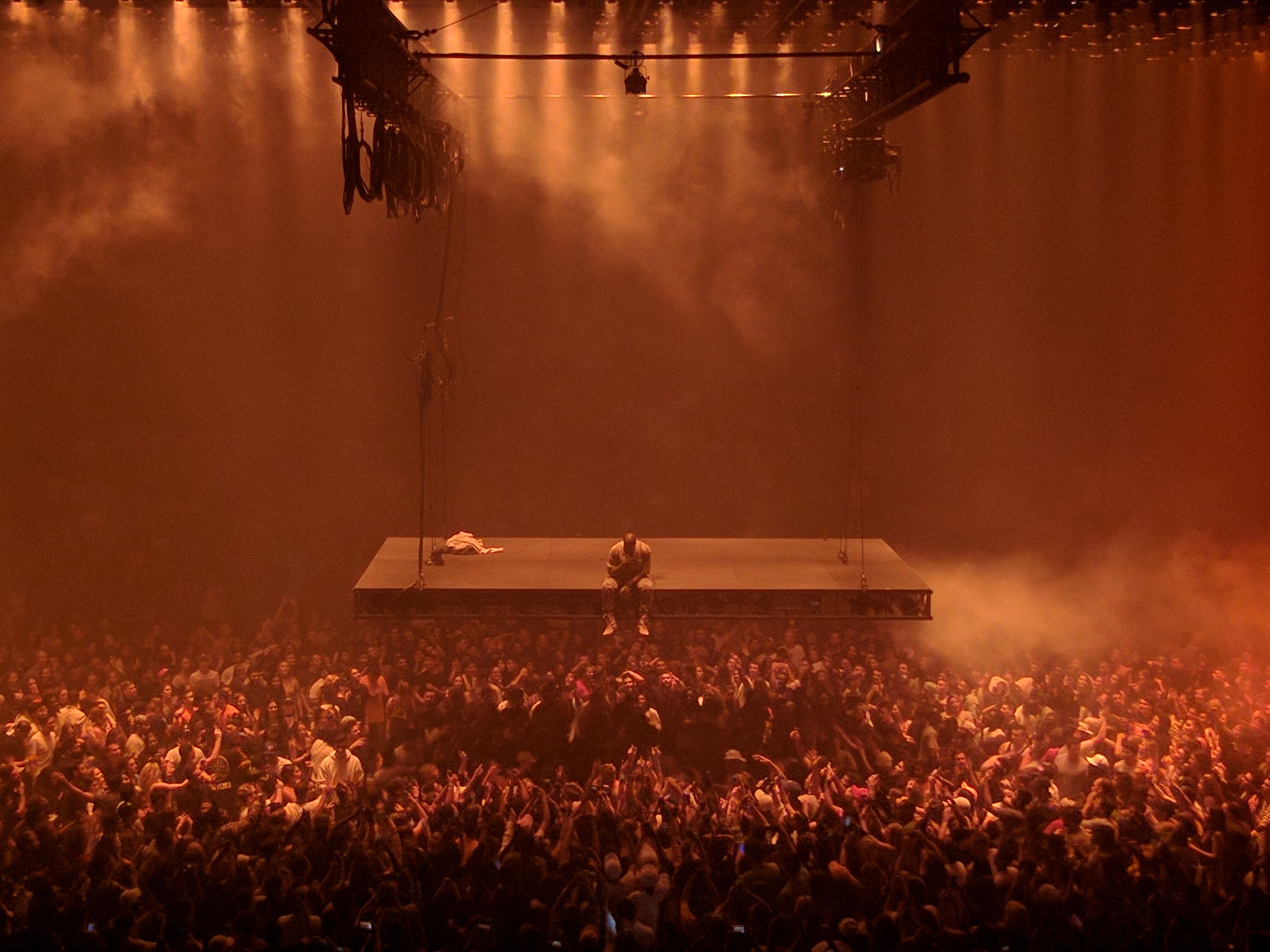I can tell you the exact moment I fell in love with music.
It was April 2019. In my english class, we had a project to make a music video for a song of our choice (mine wasn’t very notable). One of my classmates picked Heartless by Kanye West. When I heard that autotuned chorus and deep 808s for the first time, I knew that there was something that I’d been missing out on.

Kanye was the first artist I gravitated to after that. I fell in love with Kids See Ghosts and 808s. Despite his recent spiral off the face of the earth, Kanye and his music will always hold a special place in my heart.
Unbeknownst to me until years later, Kanye was in the midst of a complicated rollout at the time for his album Yandhi. Although it would never see the light of day, transforming into Jesus Is King, I feel regretful that I was never into music enough to experience these moments; to be able to see the rollout of my favourite albums and watch the creative process unfold in real time.
Then on May 13, 2022, Kendrick Lamar released Mr Morale. & The Big Steppers.
Everything about this album is special. The announcement on his website, the feature run on his cousin’s album, announcing the album in reply to a tweet saying he’d retired-there’s endless sources. But above them all, the music itself reigns above it all.
For a second, let me go back to my grade 8 english class. I’ve said that I didn’t always like writing or a traditional english curriculum, but I did always appreciate parts of the classes. I always liked the classic narrative conflicts that you learn about in introductory English; man vs. self, man vs. man, man vs. nature, etc. They are simple, but so effective in telling a story and communicating a message. Of course, this depends heavily on execution.
I like to envision Kendrick Lamar’s albums as embodying these classic conflicts:
- good kid, m.A.A.d city is man vs. world; Kendrick navigating life in the gang-dominated, violence-stricken world of Compton.
- To Pimp A Butterfly is man vs. society; Kendrick faces constructs beyond tangibility-systemic racism, the pressures of leadership, etc.
- DAMN. is man vs. world; Kendrick adapts to a new societal position and seeks to reconcile with his humanity. Although I find it incredibly difficult to pin DAMN. to a single conflict-this might need its own analysis.
Kendrick is, arguably, the benchmark of our generation-a transcendentalist. His work has already proven its timeless status in his relatively short studio career. This rapid accession explains why title after title is casted on him; “the saviour of hip-hop”, “the greatest rapper of all time”.
This brings us to Kendrick’s newest studio album.
Mr. Morale is about understanding Kendrick Lamar the person. Not Kendrick the artist, the rapper, or, most pivotally, the saviour. It is an album about understanding, hatred, breaking perpetuated cycles and self-forgiveness. But like other albums, I believe it encompasses a classic conflict-perhaps the most important of them.
Man vs. self. Kendrick turns inwards, facing the internal grief and trauma that has dominated his life up to this point and breaking past it. Society casts Kendrick as a flawless individual; our role model; our saviour. In his search for self-forgiveness, he casts himself as the opposite-a flawed man.
There is a well known quote from Nietzsche that may best encompass the thesis of Mr. Morale:
There is a false saying: ‘How can someone who can’t save himself save others?’ Suppose I have the keys to your chains. Why should your lock and my lock be the same?
The conclusion of a story is perhaps the most important aspect. In most narratives, a lacking ending is detrimental to the whole, but a great one is perennial. Think Breaking Bad vs. Game of Thrones for example.
This holds true in music and especially so in the discography of Kendrick. Mortal Man concludes the long poem that narrates To Pimp A Butterfly and resolves the album as a whole through its central influence: Tupac Shakur. DUCKWORTH. tells the story of a chance encounter that ultimately led to Kendrick’s career, and splits DAMN. into two entirely separate narratives.
There’s a lot of value in a concluding track. In the case of Mr. Morale, there are two that can be examined: Mirror and The Heart Part 5. Mirror was the final track on release, while The Heart Part 5 was released as promotional single in The Heart series a week prior, later added as a bonus track.

Mirror
Sorry I didn’t save the world, my friend / I was too busy building mine again.
Mirror concludes the second disc of the album as the original closer. Disc 1-The Big Steppers-is an open examination of Kendrick’s flaws, while disc 2-Mr. Morale-is Kendrick actualizing the forgiveness he eventually grants himself on Mother I Sober, by ‘freeing’ himself and the others damaged by trauma. Mirror serves as an affirmation of the ideas of disc 2: the deconstrution of his saviour image, acceptance of flaws, and understanding:
- “I choose me, I’m sorry”
- “I can’t live in the matrix / Rather fall short of your graces”
- “Maybe it’s time to break it off / Run away from the culture to follow my heart”
Above all, Mirror confirms that Kendrick has achieved his breakthrough, forgiving himself for the guilt and trauma he’s internalized.
The Heart Part 5
I want you.
The Heart Part 5 is a message from a post-epiphany Kendrick to ’the culture’. We’ve seen Kendrick tear himself down to reveal the common truth: all of us are flawed, including himself. Accepting that no one man can be a saviour, Kendrick has gained perspective. The Heart Part 5, at its core, is a beautiful relay of Mr. Morale’s core messages:
- “By tomorrow, we forget the remains, we start over / That’s the problem”
- “Sacrifice personal gain over everything / Just to see the next generation better than ours”
- “Look for salvation when troubles get real / ‘Cause you can’t help the world until you help yourself”
The culture is a cycle that can only heal if those part of it can break the pattern. In The Heart Part 5, this framework is laid by Kendrick. Ultimately, he just wants the culture to want him for what he’s done for them-an ironically selfish, yet human desire which gracefully concludes the story of Kendrick Lamar.
What is the better ending track?
Evidently, both are amazing songs independently and within the scope of the album. Mirror succeeds at what it seeks to do, that is, resolving the narrative of Mr. Morale and affirming the messages. Mirror doesn’t need to be multifaceted, in this regard. But as a result, The Heart Part 5 is allowed to be a more grandiose and fulfilling ending not only to Mr. Morale but to the story of Kendrick that began with Section.80.
This might seem a bit anti-climatic, but if it wasn’t already clear, I think The Heart Part 5 is a greater conclusion to Mr. Morale & The Big Steppers. Beyond this, I believe it may even be the best song in Kendrick’s discography, and one of the greatest songs in the canon of hip-hop.
This is transformation.